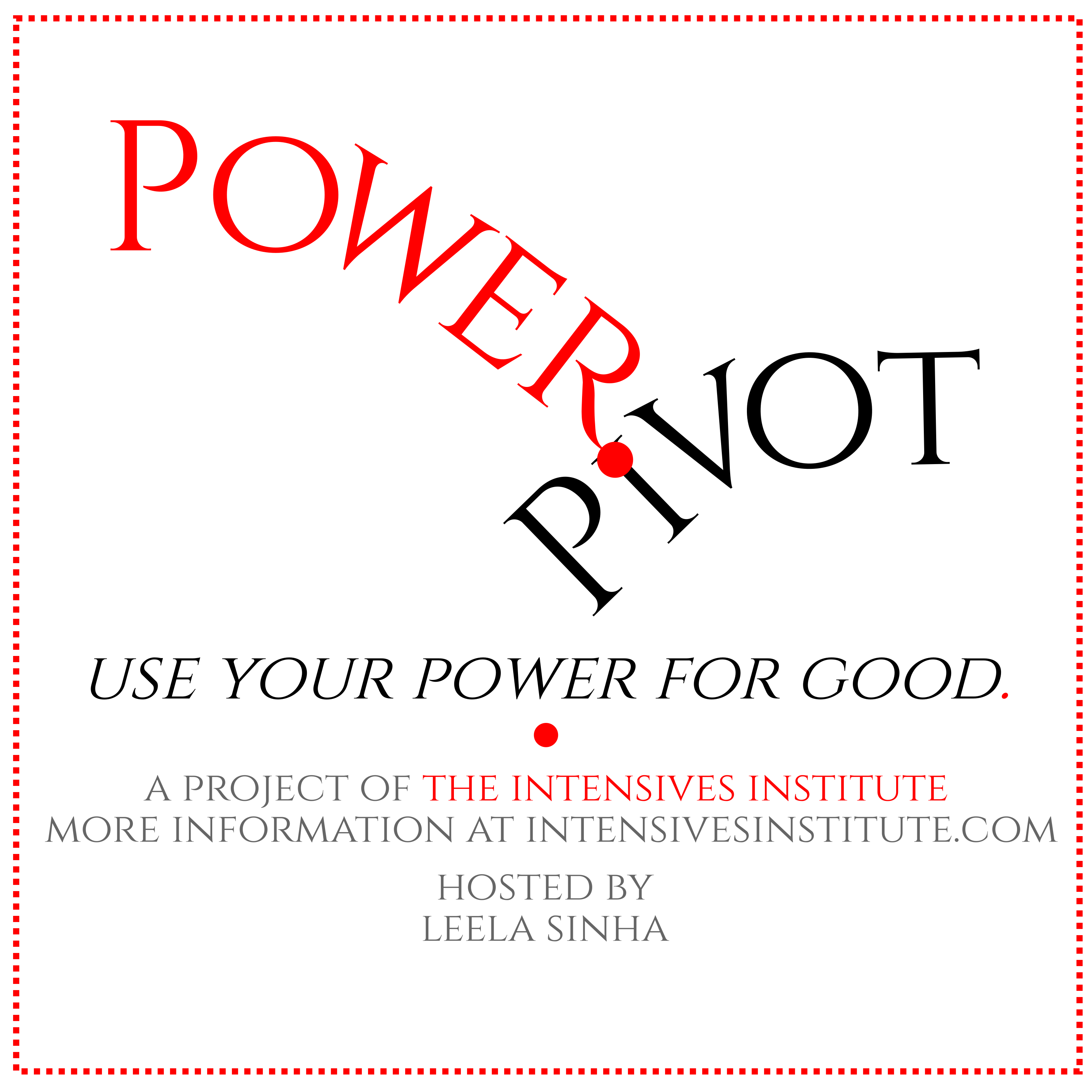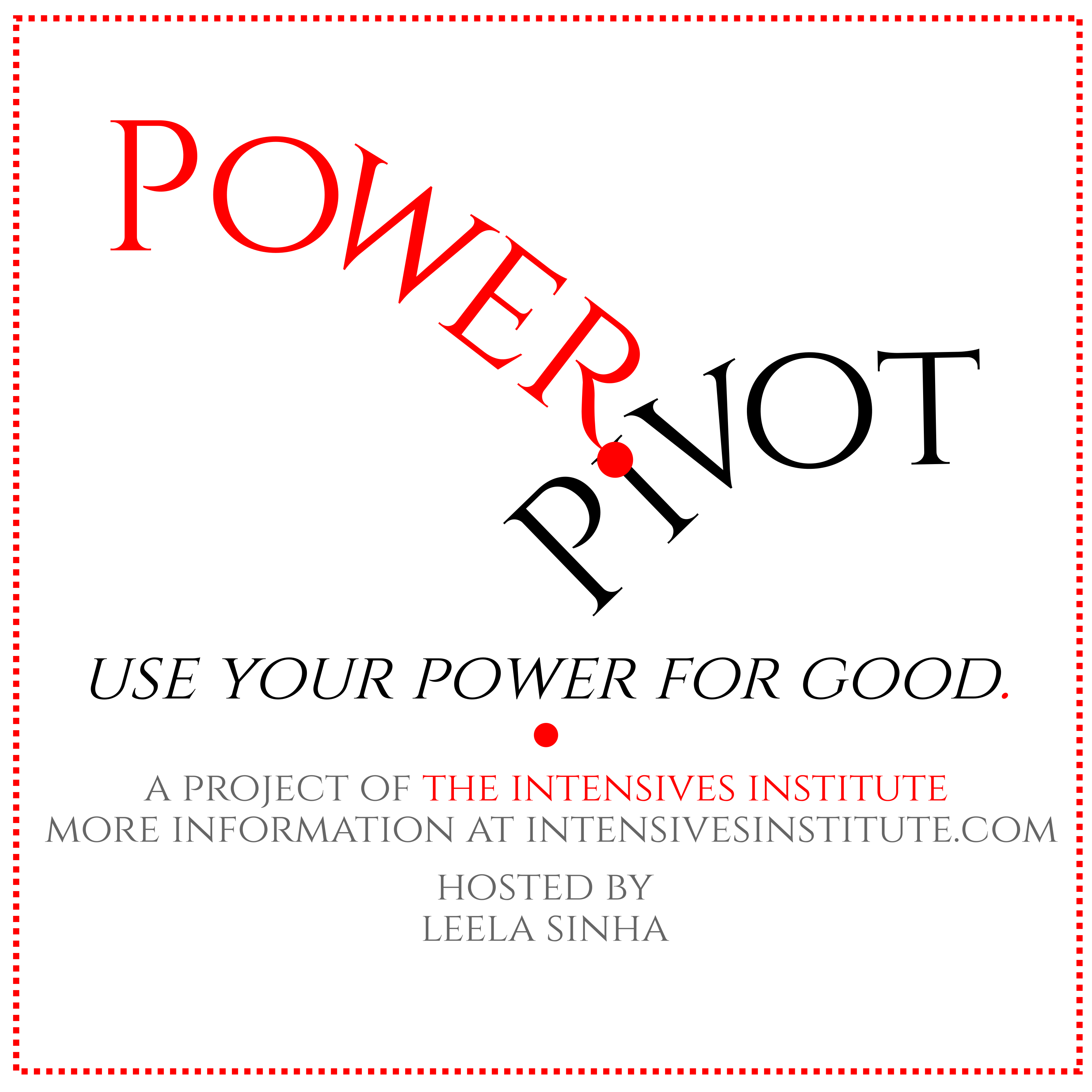Episode 43
recruiting and delegation
"Once you use intensive and expansiveness to develop a job description, to do some hiring, to do some delegation, you can't unsee it. Once you've seen it, it's everywhere. And it's not the only metric you use. But it is a metric that you use consistently. So that you can imagine who will be most successful at what."
We're going to take a little bit of a break, but before we do: let's talk about hiring, and delegation, and intensives & expansives. Understanding the intensiveness or expansiveness of the people in your team can help you bring people in and assign tasks in a way that sets everyone up for success. And remember, even though you mostly vibe with intensives (if you're an intensive), you still need expansives. And vice versa. We need each other. So let's not do this alone.
As mentioned, we will be taking a bit of a break and slowing down the release schedule during March. We have a great interview coming up, which will drop on Wednesday, March 20th. Until then, remember that there are lots of episodes and interviews from seasons 1 & 2, so you can always wander through the catalog and find something to listen to in the meantime.
Thank you all for listening, and for your continued support! Talk soon.
Transcript and notes:
https://dev.intensivesinstitute.com/captivate-podcast/recruiting-and-delegation
Recorded 26 February 2024.
Transcript
Hey everyone. Thanks for tuning in.
So in the last episode, I went a little bit off script, off the plan; and talked about handling intensive grief. And here, I'm going to weave together my intended topic for this week, which was, what kinds of things can you ask intensives to do? And what kinds of things can you ask of expansives? And I'm going to talk about big emotions. And that.
Because here's the thing, intensives are built for big emotion. We are used to big emotion, we're used to big feelings. And so you throw us into a space where people are having big feelings, by and large, we'll be able to do something with that. By and large, unless we are swamped in our own grief. And even if we are, often we'll be able to rise to the occasion for a brief period of time, as long as you let us recover afterwards.
We are that people who step into major crisis. When people are dying, when there's a fire. When there's an earthquake, a natural disaster, a unnatural disaster. A mass shooting. We are the people that you want in the trenches. Because while our feelings are big, so is our ability to handle crisis most of the time. So if everybody is having big feelings, your intensives are your leaders.
Your expansives are going to be- likely- very overwhelmed at first, unless they're trained. Expansives make really good chaplains. They're very good at just sitting with what is. But they do tend to get a little bit uneasy when people get really loud and really messy. Unless they're trained for it. So I wouldn't take your average expansive and throw them into a chaplain role, because the odds of that working out well are very low.
An intensive is much more likely to be at ease in that space. But if an intensive is working with an expansive, that can be tricky too, because the expansive will want to keep the emotional experience gentle, muted, narrow. Narrow. That narrow band of emotional expression is all they're going to want to access. And the intensive is likely to not understand that viscerally, and have to really key into that from an intellectual perspective rather than from an empathetic one.
But intensives are good at the big stuff. Intensives are good at the big projects. Intensives are good at the big feelings. Intensives- if it feels giant, enormous and has a lot of sparkle and flair. If it feels like a firework show: give it to an intensive. If, on the other hand, it feels like a long plodding task, give it to an expansive. Use the tortoise and the hare. Does it feel like a hare experience or a tortoise experience? Is it one foot, the other foot. One foot, the other foot? Or is it sprint and take a nap? And sprint and take a nap.
Intensives are good at planning a gala. Intensives are good at envisioning building an entire new wing. Intensives are good at expanding into a brand new sales territory. Expansives. Expansives are good at taking a breath and doing some analysis. Expansives are good at the very long haul.
Expansives are good at "I will log in every day and do five minutes of this." Expansives are good at tuning in to things that feel like a meditation. Expansives are good at things that you would might call discipline.
Intensives are generally not good at things like that unless they get really, really into them. And if they're really into them, then they might get a little bit rigid, perhaps. Give expansives the spreadsheets. Give expansives the tracking for the donors. Give intensives the creation of the publicity materials. Give expansives the distribution of the publicity materials.
Have them work together on the language. Because you probably want the expansives to talk to the expansives.Tto write copy for expansives Expansives, those slow, steady, faithful people. You want to appeal to things like duty. Things like the planfulness. The long range investment value. Intensives. Intensives, you'll want to appeal to things like the possibilities. All the different places this could go once it's in place. How it lives up to values, ideals, inspiration.
That's if you're selling a widget. That's if you're raising money for a project. That's if you're approaching your VC funders. Applying for funding is often very much the same thing. If you can find out how many people who are making the call for your company are intensives, and how many are expansives, and what they value, you'll have a better chance.
The thing about business these days is that we're dealing with curveballs all the time. Curveballs are no longer a surprise, they are the morning coffee. And so there is a tendency right now to lean toward intensives. Which makes sense. But to want those intensives to act like expansives, except when the curveball comes in. Which is not how this works.
So if you are an intensive hiring intensives, your company is going to start to feel more like it is culturally intensive around you and you're going to feel more at ease. And there's going to be more room for you to take risks because there will be less pushback. Which is fine, which is good. But make sure you have expansives that you trust. That you listen to. Do not stop listening to them.
And make sure that there is a place in this whole mess and chaos for you to stop and breathe and rest. And really think about who you need and where you need them. What the most important things are that are coming, and whether intensives or expansives are actually the right people to be doing those.
This is one of those topics that I struggle to break down in small pieces. Because it seems so obvious to me. Because I've been immersed in this work for so long. I certainly have worked with clients on this where we'll get on the phone and about half an hour into our hour session, they'll say "it seems so obvious when you say it. I don't know why I didn't think of this."
And I'll tell them you didn't think of this because you don't live in this. You don't soak in this every day. This is a perspective that I can offer you in an hour. And then you can take it back into the thing that you do all day every day, which is different. There's no shame in not having thought of it. A lot of intensives will be like "oh my god, I should have thought of this. Why did I need help?"
Yeah, you need help because this isn't your specialty. But it is my specialty. And once you use intensive and expansiveness to develop a job description, to do some hiring, to do some delegation, you can't unsee it.
Once you've seen it, it's everywhere. And it's not the only metric you use. But it is a metric that you use consistently. So that you can imagine who will be most successful at what. And so you can anticipate what those people will need to be successful at that thing.
If you assign an intensive to head up a project, expect them to come in with some requests for resources that are, in your perspective, extravagant. And know that if they're asking for them, they're probably asking for them for a reason. See if you can find the room in your budget to trust them.
Know that if you're assigning expansives to something, they will probably take longer than you want them to. And see if you can find it in your time budget to let them. Because that's how you know it's gonna get done right. It's everywhere.
After you get done with your hiring and your delegation, then you're on to marketing. Who are your people? Are they intensives? Are they expansives? What does that mean they need to hear about your product? Or your service? So that they will feel like you understand them, and you trust them, and your product is what they need.
Let me know if you have questions. I'm always glad to answer questions. Thanks for tuning in. Talk soon.


